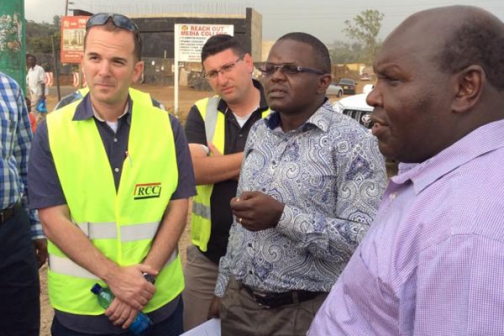×
The Standard e-Paper
Smart Minds Choose Us

The Ministry of Transport is working on a policy document that will bring on board private developers to help meet the country’s infrastructural needs.
John Mosonik, the State Department for Infrastructure Principal Secretary, while addressing journalists in Kisumu yesterday on status of roads in Nyanza and Western Kenya said there is a growing demand for roads in Kenya which the Government alone cannot meet with its budget.